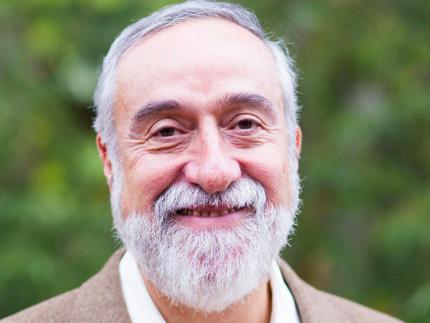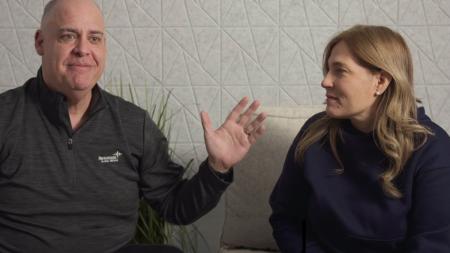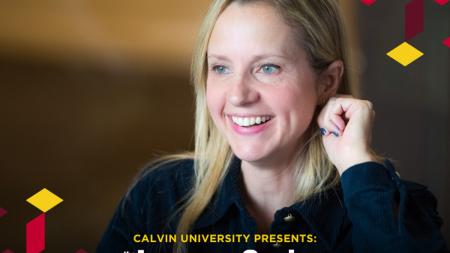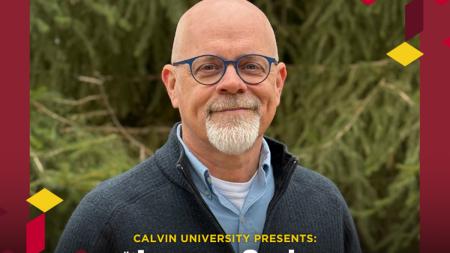Ephesians: A Book of Worship and Peace

From the initial greeting to the final benediction, the central theme in the apostle Paul’s letter to the Ephesians is shalom (peace), writes Mariano Avila in the first of a special series of 12 articles for the Calvin Institute of Christian Worship.
So far Avila, a professor emeritus of New Testament at Calvin Theological Seminary, has written seven articles – all of them in Spanish – reflecting on Paul’s letter to the Ephesians.
In that first article, Avila points out, “To be artisans of shalom is to live according to the plan that God thought from eternity: to gather all of his creation under the lordship of Jesus, his Son (Eph. 1:10).”
According to Jesus, Avila writes, “being peacemakers is one of the characteristics of those who follow Jesus in the world and are characterized by shining in the world and acting like the salt of the earth. In reflecting the character of our Father in their daily work, they will be called sons and daughters of God (Matt. 5:9-16)”
John Witvliet, director of the Calvin Institute of Christian Worship, said Avila’s writing, teaching, and presentations have for years been valuable additions to the work of the institute. And this new project, especially because it is presented entirely in Spanish, is a welcome extension of his efforts as well as that of the institute.
Referring to this new series of articles, Witvliet said, "We are grateful for opportunities to engage with several Spanish-speaking pastoral leaders in several denominations – here in West Michigan, across the U.S.A., and across the world – who are eager to have resources to strengthen their own teaching and preaching ministries. We are deeply grateful for Professor Avila's ministry of teaching through writing and resource development."
When Avila retired last year, Jul Medenblik, president of Calvin Seminary, said: “The key line is that Professor Mariano Avila has given us a foundation for us to enter into a new and expanded chapter of ministry in Spanish. We are thankful for his pioneering work.”
Avila was born in México City, where, before coming to Calvin Theological Seminary, he served as the pastor of six Presbyterian churches. He also served in the Seminary of the National Presbyterian Church as professor, academic dean, and president and was professor of biblical studies at the Comunidad Teológica de México. For several years he was also coordinator of urban ministries for community transformation and theological adviser for World Vision México, and he served as an advisor for the Spanish-publishing ministry of CRC Publications.
With an international audience of Spanish-speaking pastors and others in mind, Avila states in his first article: “To make peace is to imitate Jesus, who is our peace, who during his ministry made peace, sealing his task with his death on the cross, and finally proclaimed peace (Eph. 2:14-15, 17).”
To an extent, the dozen articles – five of which are yet to be published – are a sort of good-bye gift, as Avila retires and plans to return home to Mexico, for the many students who took courses in the Certificate in Hispanic Ministry program that he began at Calvin Seminary in 2012.
Many of the 200 or so students who completed the program have become like family to Avila, he said, and a large portion of them, particularly in the early years, have been pastors serving growing Latino churches in West Michigan.
“The articles come from the things I have learned (in teaching classes and interacting with students), and I hope that students will find themselves in some of the stories I share,” said Avila.
“I hope these reflections help the church and leaders to see how the regular act of worship is so important and that Ephesians reminds us, in every chapter, that Jesus has reconciled us with God, with other people, and with creation (Eph. 2:11-22).”
Calvin Seminary, in conjunction with the DeVos Foundation, launched the Certificate in Hispanic Ministry Program in fall 2012. The program began as a result of consultations held with local Hispanic pastors, many of whom had little formal theological training, said Avila.
At the suggestion of the local pastors, the program has offered courses ranging from pastoral counseling and community transformation to preaching and church administration. Also at the suggestion of pastors, the program has been taught in Spanish.
While local experts in Hispanic ministry have taught a number of the courses, said Avila, some of the best Hispanic scholars from across the country have also been brought in to teach.
Students have come from a range of churches, including Pentecostal or neo-Charismatic independent churches as well as the Christian Reformed Church, the Reformed Church in America, and Baptist and Methodist and Catholic churches. The seminary plans to continue the certificate program and also to offer a master’s degree in Hispanic ministry.
“We shared a great deal during the classes,” said Avila. “Students talked of great tribulations as pastors and members of minority Hispanic churches. There were horrible stories of racism and oppression everywhere in their communities and neighborhoods.”
Together, they had discussions about those situations as well as about the difficulties of trying to stay connected during the COVID-19 pandemic, said Avila.
“We worked to provide the spiritual resources to keep them going,” he said. “During COVID, many of the people had no work and no support from the government. Many got sick; many lost their businesses. It was a very painful time.”
Nonetheless, Avila added, they had Ephesians – and its life-giving message – to study and to rely upon: “In this small book is a guide to Christian worship, how Christians need to seek and advocate for peace, and, above all, realize how through their worship they can embrace eternal hope.”
“Paul’s letter to the Ephesians demonstrates that worship is an excellent way of expressing the deepest theological teachings and of integrating them into everyday life. Actually, Ephesians shows that life is an act of worship,” Avila said in a presentation a few years ago at the annual Calvin Symposium of Worship.
In one of his articles posted online, he wrote: “We have been following the way in which the letter to the Ephesians develops a liturgy of worship to God – Father, Son, and Holy Spirit – thus turning the worship service into a discipleship workshop. Indeed, in worship we learn about our identity, we find a vision of what God is doing in the world, and we become aware of our vocation as artisans of peace.”


